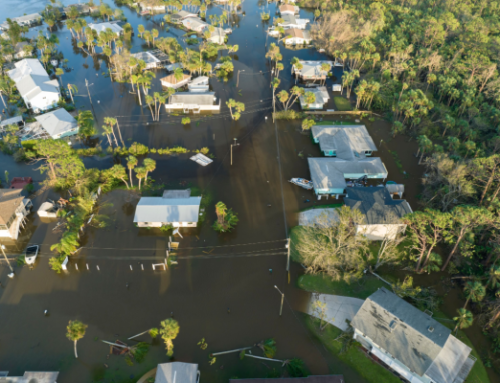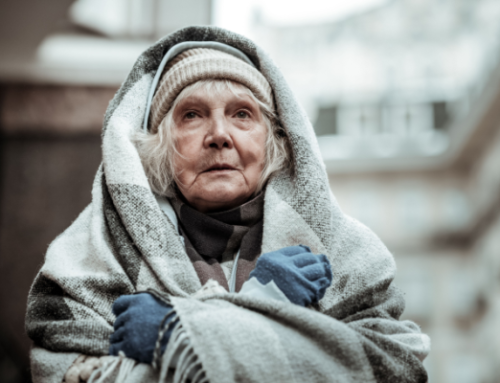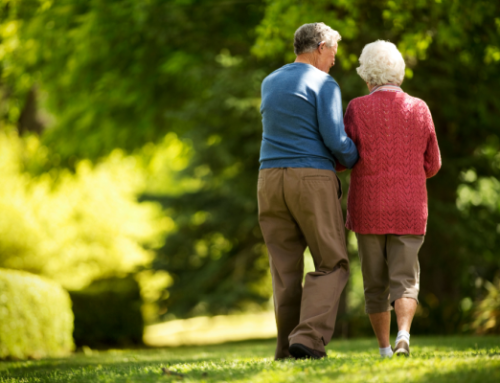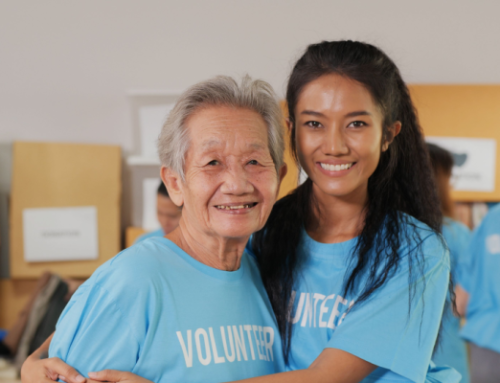The University of Michigan’s Institute for Healthcare Policy and Innovation conducted a National Poll on Healthy Aging (NPHA) in January 2023, which asked 2,563 people between the ages of 50 and 80 about their social connections and any feelings of isolation they were experiencing in their lives. The poll’s findings revealed that many older people, particularly Baby boomers living alone (aka, “soloagers”), continued to experience frequent loneliness even post-pandemic. But one solution to this all-too-common issue may be found in an unexpected place: the grocery store.
Loneliness continues post-pandemic
The NPHA study has been collecting valuable information on aging over the course of several years with researchers polling a similar sample size with the same questions in October 2018, June 2020, January 2021, and January 2022. Respondents’ answers have revealed some interesting pre- and post-pandemic data, particularly around isolation and feelings of loneliness among older people.
Among the key findings of the most-recent poll in January 2023:
- Approximately 1 in 3 respondents (34%) said they sometimes or often feel isolated from others. That figure was down from the June 2020 survey in the height of the pandemic when 56% reported feelings of isolation. But it is important to note that this figure is up 25% from the 2018 survey when only 27% of people were experiencing these feelings.
- A lack of companionship over the course of the past year was reported by over a third of survey respondents (37%). This figure was higher during the pandemic when 41% noted feeling this way in June 2020. However, in October 2018, fewer survey participants (34%) noted this.
- One in 3 respondents (33%) said they have social contact with friends, neighbors, or family they do not live with infrequently — once per week or less. Once again, this figure is lower than during the throes of the pandemic (June 2020) when 46% said they infrequently interact with people outside their home. However, it is higher than October 2018 when just 28% of those polled responded this way.
Go to the National Poll on Healthy Aging (NPHA) to see more findings from the surveys conducted between 2018 and 2023.
>> Related: Many Senior Living Residents Fared Better than Non-Residents During COVID
Shopping for solutions to senior loneliness
The findings of this most recent NPHA study reveal that we are not yet back to a pre-pandemic status quo with regard to older people’s feelings of loneliness and social isolation. While it is the goal of a majority of older people to remain in their own home for as long as possible, this sense of loneliness, particularly among Baby boomers living alone, may be the price they are paying for their independence.
A somewhat unlikely industry — grocery stores — has found a way to help address the large numbers of older people who are feeling isolated or lacking companionship. Some grocery stores in Europe and Canada have introduced designated slow social lanes during certain times of day for patrons who would like to take a little more time during the checkout process.
A “relaxed checkout” concept was first piloted in 2017 by a Tesco grocery store in Scotland as a way to give those with Alzheimer’s disease and other types of dementia a less stressful shopping experience. Then, in 2019, a Dutch grocery chain called Jumbo took the concept to the next level, piloting a concept called “Kletskassa,” which translates to “chat checkout,” with the aim of reducing loneliness among store patrons.
>> Related: The Key Difference Between Social Isolation & Loneliness
Slow social lanes fill a crucial need
Many people are in a rush to get in and out of the grocery store as quickly as possible. Self-checkout lanes have helped facilitate this desire. But not everyone is in such a hurry. In fact, for some people — such as older people who are living alone — their trip to the grocery store may be the only human contact they have during their day.
Designated slow social lanes are intended for older store patrons who would like to take a little more time during the checkout process. This includes engaging in conversation with the cashier beyond the standard “Did you find everything?” query. In fact, at Sobeys, a grocery store chain in Edmonton, Canada, that has created designated slow social lanes, some shoppers spend up to 15 minutes chatting with the cashier.
One Sobeys slow social lane cashier has reported that his conversations with shoppers range from the lighthearted to the deeply personal, with people sharing their troubles or grief with him. This is a testament to the fact that, perhaps more than ever, some people truly are in need of a kind word or a listening ear.
>> Related: Why Socialization May Be CCRCs’ Top Selling Point Post-Pandemic
Seeking novel solutions to prevent loneliness
While instituting slow social lanes is a step in the right direction toward addressing the loneliness and isolation so many older people — particularly those “soloagers” — are experiencing, we must do even more as a society. If the goal of most retirees is to remain in their own home, we must find additional ways to support their overall wellbeing. This includes finding innovative ways to facilitate interpersonal interactions and relationships.

FREE Detailed Profile Reports on CCRCs/Life Plan Communities
Search Communities






